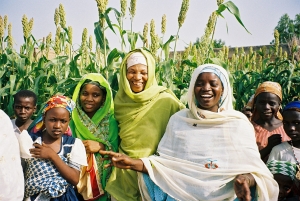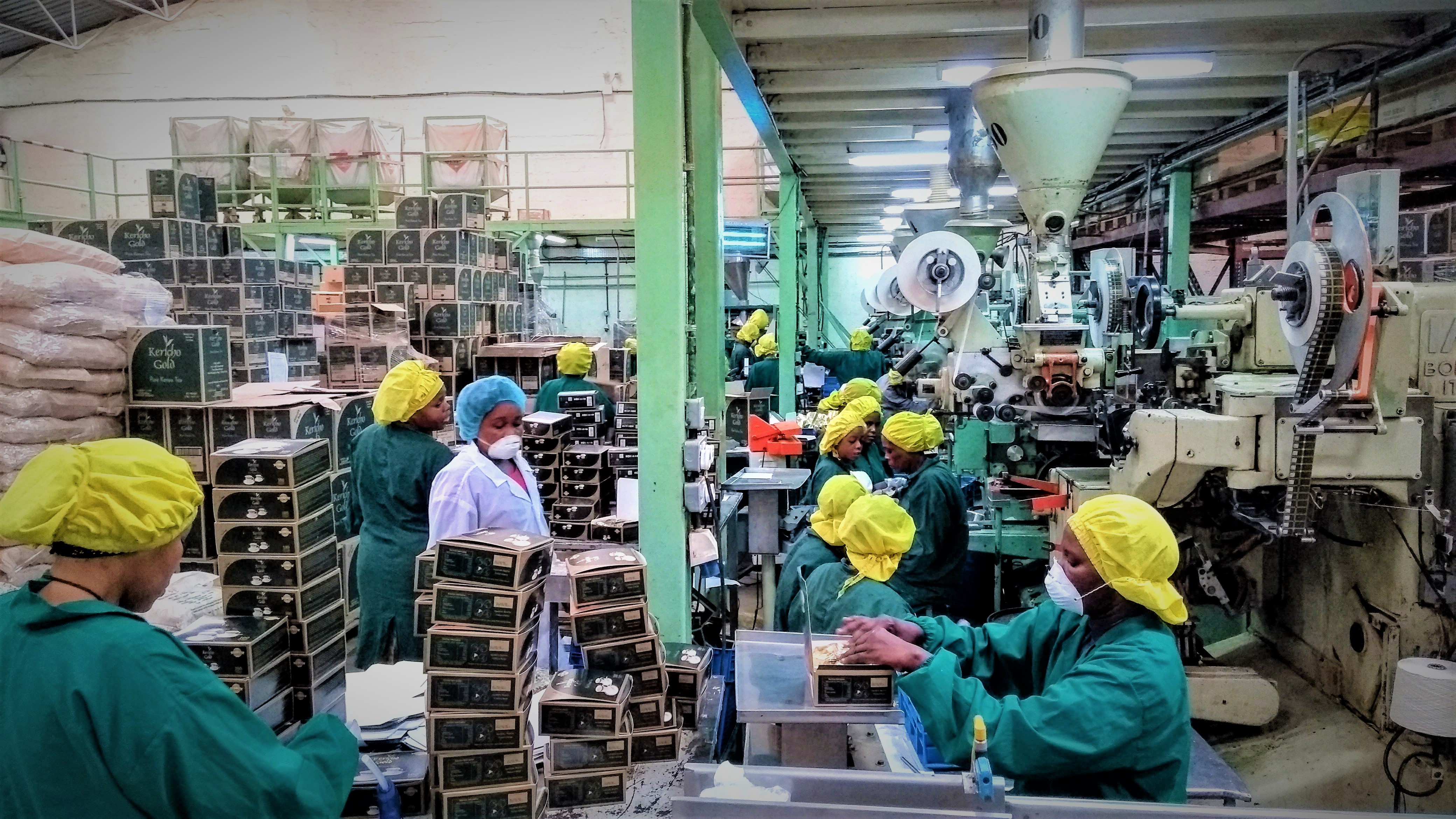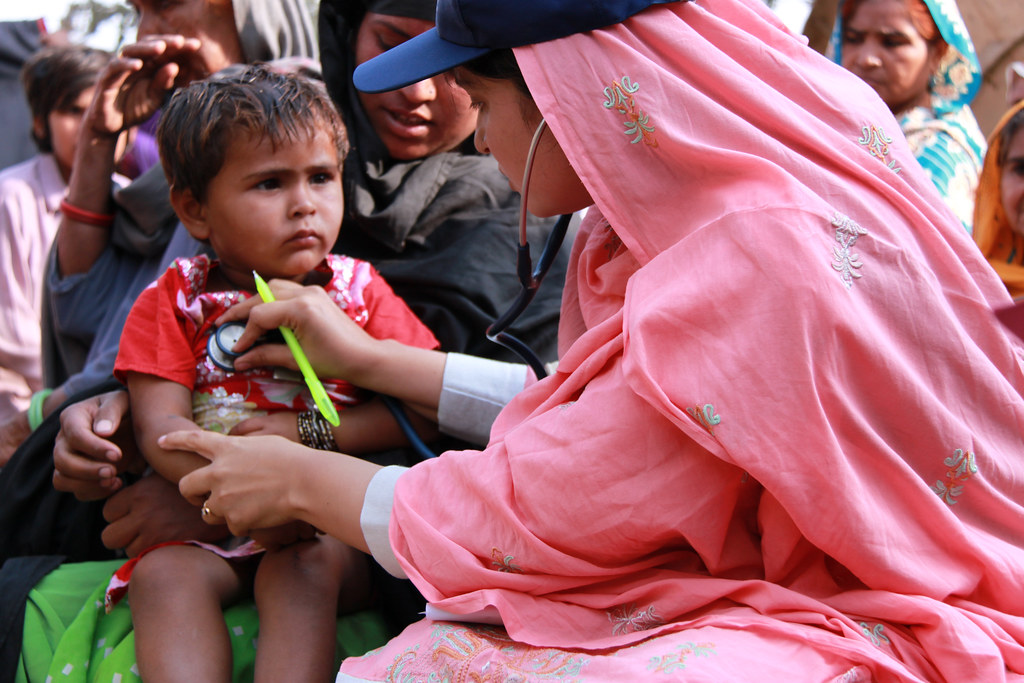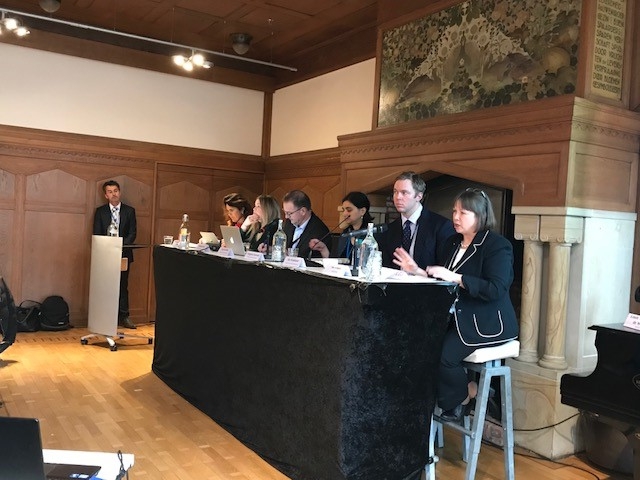Kate Meagher, associate professor in LSE’s Department of International Development, demonstrates why poverty, not cultural values, is the key driver behind Nigeria’s demographic tsunami.
A recent article in the Financial Times on 13 October 2016 drew attention to the looming crisis of falling oil prices and rapid population growth in Nigeria. Under the dramatic headline Dividend or disaster, the article suggests that the failure of Nigeria to rein in population growth in response to economic contraction is a problem of Islamic values. An opening vignette of a man in his 40s with four wives and eighteen children illustrates an argument that fertility rates as high as 8.4 children per woman in some of the poorest northern Nigerian states are breeding poverty and disaffection in the largely Muslim north of the country. According to the columnist, “cultural norms hold sway in the conservative north, a predominantly Muslim region where poverty and high unemployment are cited as factors behind the rise of Boko Haram, the jihadist group.” While Nigeria’s demographic tsunami amid joblessness and falling growth is an issue that demands urgent attention, blaming it on Islamic values is a dangerous misreading of both the demographic and the economic issues at play.
On the demographic front, Nigeria’s current economic woes serve to muddle the relationship between population growth and poverty. Back in 1973, the celebrated Ugandan academic Mahmoud Mamdani used evidence from birth control programmes in rural India to show that poverty causes population growth, rather than the other way around. Mamdani’s classic, The Myth of Population Control, focuses on the logic of the desperately poor rather than that of policy makers to show how high infant mortality rates and strategies of economic diversification lead people living in extreme deprivation to maximise their options by having many children. The hope that a reasonable number will survive, one or two might be bright enough to attend school and get a better job, and the rest will be able to work on the farm and maybe bring in some money from casual labour reflected a genuine, if somewhat optimistic, rationality, not a set of irrational cultural values, Muslim or Hindu.
In Nigeria, a childhood disease environment plagued by malaria, typhoid and the regular measles and meningitis seasons, compounded by a medical system fraught with inadequate facilities and user fees, having just a couple of children feels too risky. This is doubly the case in northern Nigeria, where poverty is 40 per cent higher than in the south-western part of the country, and infant and under-five mortality rates are more than twice as high. As a Western middle-class Christian who gave birth to children in northern Nigeria, I can attest to similar intentions to have more children just to be safe.
Political divisions also intervene in northern Nigeria. Long-standing regional inequalities between the predominantly Muslim north and the majority Christian south have ingrained a sense of grievance and marginalisation among Muslim northerners. The colonial decision to neglect education in the north to facilitate indirect rule has left the bulk of the northern population with a legacy of poverty and lack of skills. This produced a northern economy heavily dependent on agriculture and public employment which have been gutted over the past 30 years by market reforms and cycles of drought. As I have explained in more detail in a research paper and a blog post, collapsing livelihoods and poor education have left the northern region ill-placed to take advantage of new economic opportunities, while the better educated south-west has become a magnet for foreign investment. This has intensified long standing regional inequalities and northern disaffection, as investors cherry-pick the dynamic regions of the south, and shy away from the more demanding investment and training needs of the northern states. Within an increasingly polarised religious context, both nationally and globally, efforts at population control are perceived by many in northern Nigeria as an attempt to further marginalise Muslims. The polio epidemic in northern Nigeria in 2004 was linked in part to a false rumour that the polio vaccine contained birth control medication as part of a Western conspiracy to reduce Muslim populations.
The notion that rapid population growth is a product of cultural values rather than economic and political conditions also ignores recent changes in demographic trends in sub-Saharan Africa, on which I have commented in a recent article. A shift to lower birth and death rates – known as the demographic transition – was already underway across Africa, but has stalled since the 1990s, and even reversed in some parts of the continent. As demographer John Bongaarts and others have noted, the stalling of Africa’s demographic transition is not a product of culture, but has been laid at the door of declines in GDP and accompanying reversals in life expectancy, infant and child mortality rates, and education. In Nigeria, there is clear evidence of a stalled demographic transition, accompanied by a stalling, and even reversal in longer term declines in under-five mortality rates from the mid-1980s. A more regional picture shows that fertility rates in northern Nigeria were actually declining between the late 1970s and 1990, and only began to increase again after 1990, as economic hardship and reversals in child mortality rates began to bite.
These worrying trends are less a product of culture than of draconian economic reform programmes of the 1980s and 1990s that even the IMF has recognised were ‘oversold’ . The new economic downturn triggered by falling commodity prices threatens to exacerbate these demographic reversals. Addressing the vicious cycle of poverty and high population growth in Nigeria calls for attention to the root causes of poverty, unemployment, and the evisceration of public services, all of which have made having more children look to many like a necessary gamble. Admonishing Muslims to cut their demographic coat according to their cloth ignores the increasingly angry question of why their cloth is so small when other parts of the country are enjoying inflows of foreign investment and new job opportunities.
It is also worth noting how quickly recent investor enthusiasm over Nigeria’s ‘large young population’ has shifted to a concern with over-population and pronatal religious values. International consultancy firms and global purveyors of designer goods were delighted with the rapid growth of Nigeria’s aspirational young labour force in 2014 when the country was promoted into the ranks of the MINT countries (Mexico, Indonesia, Nigeria and Turkey) – an edgier class of investment destinations to replace the slower growing BRICS. Now that economic growth is threatening to shift from an average of 5 per cent per capita to 1.6 per cent, well below the population growth rate of 2.6 per cent, discourses on Nigerian demography have shifted from dividend to disaster. Prudent warnings about the need for Muslims to have fewer children in hard times betray an underlying disappointment with northern Nigerians for failing to breed reliable consumers of smart phones and fashion accessories.
In a country of 170-odd million faced with stark inequalities and rapid economic contraction, it is time to be more realistic about the imagined futures guiding policy and investment decisions. There is an urgent need to look beyond investor imaginaries of turning Nigeria, and Africa more broadly, into a ready pool of ‘bottom of the pyramid’ consumers, and to be more conscious of the fractures and inequalities that the drive to liberal markets has created. Rather than blaming the poor for their poverty, we must recognise and address the cumulative effects of past policy failures, and shift policy attention from quick investment payoffs to the long term social and economic investment needed to rectify decades of market-led neglect. Instead of imagining the profits from investment in dynamic segments of emerging markets, it is time for investors and policy makers to start counting the costs of economic strategies that have left so many behind. What northern Nigerians need is not fewer children, but more social provisioning and economic opportunity so that seeking a decent future does not depend on a demographic gamble.
Kate Meagher is an associate professor in LSE’s Department of International Development.
This article was first posted on the Africa at LSE blog.






